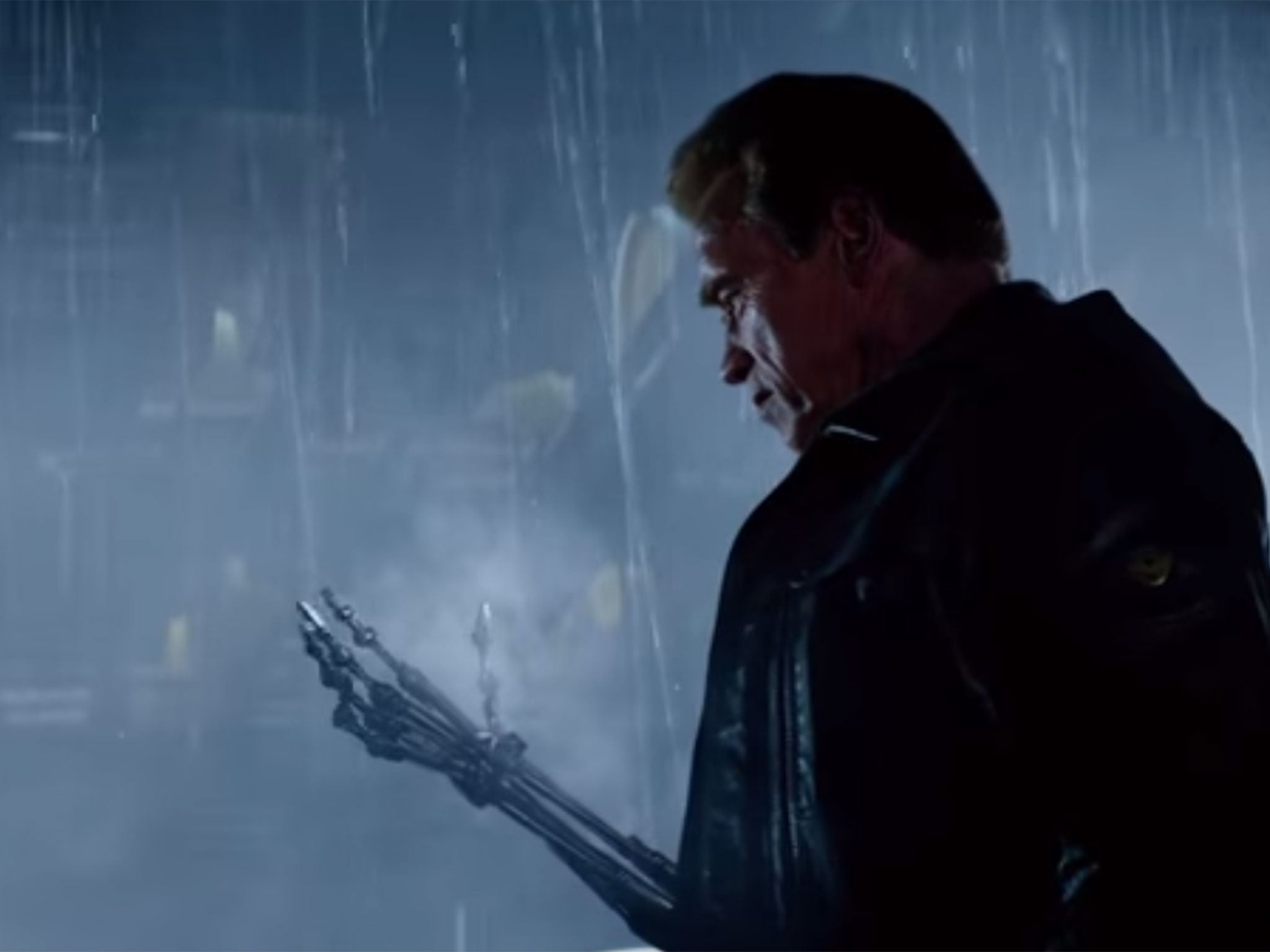Why Terminator: Genisys should be the end of the line for time travel
Time travel is everywhere in today’s blockbusters, but enough is enough

Your support helps us to tell the story
From reproductive rights to climate change to Big Tech, The Independent is on the ground when the story is developing. Whether it's investigating the financials of Elon Musk's pro-Trump PAC or producing our latest documentary, 'The A Word', which shines a light on the American women fighting for reproductive rights, we know how important it is to parse out the facts from the messaging.
At such a critical moment in US history, we need reporters on the ground. Your donation allows us to keep sending journalists to speak to both sides of the story.
The Independent is trusted by Americans across the entire political spectrum. And unlike many other quality news outlets, we choose not to lock Americans out of our reporting and analysis with paywalls. We believe quality journalism should be available to everyone, paid for by those who can afford it.
Your support makes all the difference.Paying attention? Notepad at the ready? Good – because if you’re not concentrating, you may be as bamboozled by the plot of Terminator: Genisys as I am. It goes something like this. The film kicks off in the year 2029, which is roughly when all previous Terminator instalments began. A war is raging between our robot overlords and the human resistance movement. The machines send a muscly cyborg (Arnold Schwarzenegger) back in time to 1984 to assassinate Sarah Connor, the lowly waitress who will one day become the mother of resistance leader John. But the humans get their hands on the time-travel apparatus and send their own soldier back through the decades to protect her.
All clear so far? It should be, because James Cameron’s first Terminator film had exactly the same premise. The confusing bit is that in the latest episode – the fifth in the series – the soldier travels back to 1984 to discover that he has landed in a different timestream from the one he was expecting. In this version of events, Sarah (Emilia Clarke) is neither a waitress nor oblivious to the looming robot-versus-human conflict: ever since she was a child, she has actually been hanging out with a friendly cyborg, reprogrammed by the Resistance and also played by Schwarznegger. As a result, she is rougher and tougher than Linda Hamilton’s Sarah of 31 years ago, and her haircut is less awful. More importantly, she lives in an alternate universe where nothing from the first four Terminator films actually happened.

Now, you have to hand it to the screenwriters. Not only have they come up with a way to reinvigorate the franchise, they’ve also come up with a pretext for the sixtysomething Arnie to wrestle a digitally generated thirtysomething Arnie – and that, in itself, has to be worth the ticket price. Still, it’s difficult to watch the trailer for Terminator: Genisys without experiencing a certain weariness. It’s not just that you need a flow chart to understand it: the series has always been a spaghetti of temporal paradoxes. The really depressing aspect is that this Terminator instalment effectively deletes all of the previous ones, and if the film-makers can do that once, what’s to stop them doing it again and again? Why shouldn’t they take us to another alternate universe in every subsequent sequel? And why should we care what happens in this film if it could all be erased in the next? What, frankly, is the point of it all?
It’s what we might call The “Superman The Movie” Conundrum. In Richard Donner’s seminal superhero movie, Lois Lane is killed when her car is swallowed up in an earthquake. End of story? No, because Superman flies around the Earth so quickly that he reverses its spin, and this feat – rather than causing catastrophic tsunamis – reverses the flow of time itself. Lois comes back to life, and only Superman knows that she ever died to begin with. Being generous, you could say that the film was declaring itself to be a fairy tale: a magical children’s fable about love conquering all. But if the time-travel twist was acceptable on this occasion, that’s only because it came at the end of the film. Viewers didn’t have the chance to ponder Superman’s newfound ability to rewrite history before the credits rolled. But then came the three sequels, each of them forcing us to ask why the Man of Steel didn’t just do the time warp again. If nothing else, why didn’t he turn back the clock and win last week’s lottery? That way he wouldn’t have to work as a Daily Planet reporter anymore, and could concentrate on fighting crime.

Similar questions arise whenever screenwriters rely on time travel. If Hermione can use Professor McGonagall’s Time-Turner to squeeze in extra classwork in Harry Potter and the Prisoner of Azkaban, why can’t she use it, Terminator-style, to bump off Voldemort when he was a boy? If Kitty Pryde can send Wolverine’s mind back to his younger self’s body in X-Men: Days of Future Past, why doesn’t she get him to undo all of Magneto’s villainy? As soon as a film’s characters are able to hop through the fourth dimension to right some wrongs, then there’s no reason why they shouldn’t do so on a regular basis. And if they can do that, then the film can’t have any suspense. Nothing is at stake. The narrative becomes a video game which can be reset whenever someone loses a life. To take another recent example, last year’s Edge of Tomorrow saw Tom Cruise stuck in a Groundhog Day style time loop as a soldier gradually learning how to defeat aliens. The major problem being: who cared that Cruise kept being smushed by extra-terrestrial beasties when he could start the day again a minute later?”
As tension-spoiling as it may be, however, time travel is everywhere in today’s blockbusters. J J Abrams rebooted Star Trek with it in 2009, expunging the franchise’s established chronology with an opening 129-year jump back that handily symbolised Hollywood’s endless urge to revisit past triumphs. Since then, we’ve had Jake Gyllenhaal in Source Code, Bruce Willis in Looper, John Cusack in Hot Tub Time Machine, Will Smith in Men In Black 3, Domhnall Gleeson in About Time, Matthew McConaughey in Interstellar, Ethan Hawke in Predestination, and more besides.
Enough is enough. The moment has come to call time on time travel, at least until it regains its rarity value. For now, it’s a storytelling device that’s over-used, illogical, and, crucially, impossible. For a final word on the subject, let us turn to the unlikely source of Game Change, HBO’s 2012 docudrama about Sarah Palin’s vice-presidential candidacy. When Palin’s inadequacy comes to light, the Republicans’ senior campaign strategist (Woody Harrelson) is asked: “If you had to do it over again, would you have her on the ticket?” His reply is admirably pragmatic: “You don’t get to go back in time and have do-overs in life.”
He’s right. You don’t. Time’s winged chariot keeps hurtling onwards whether you like it or not. And it’s that unstoppable progress that makes every second precious, in and out of the cinema. Although, admittedly, a cyborg assassin can make them seem precious, too.
‘Terminator: Genisys’ is out on Friday
Join our commenting forum
Join thought-provoking conversations, follow other Independent readers and see their replies
Comments